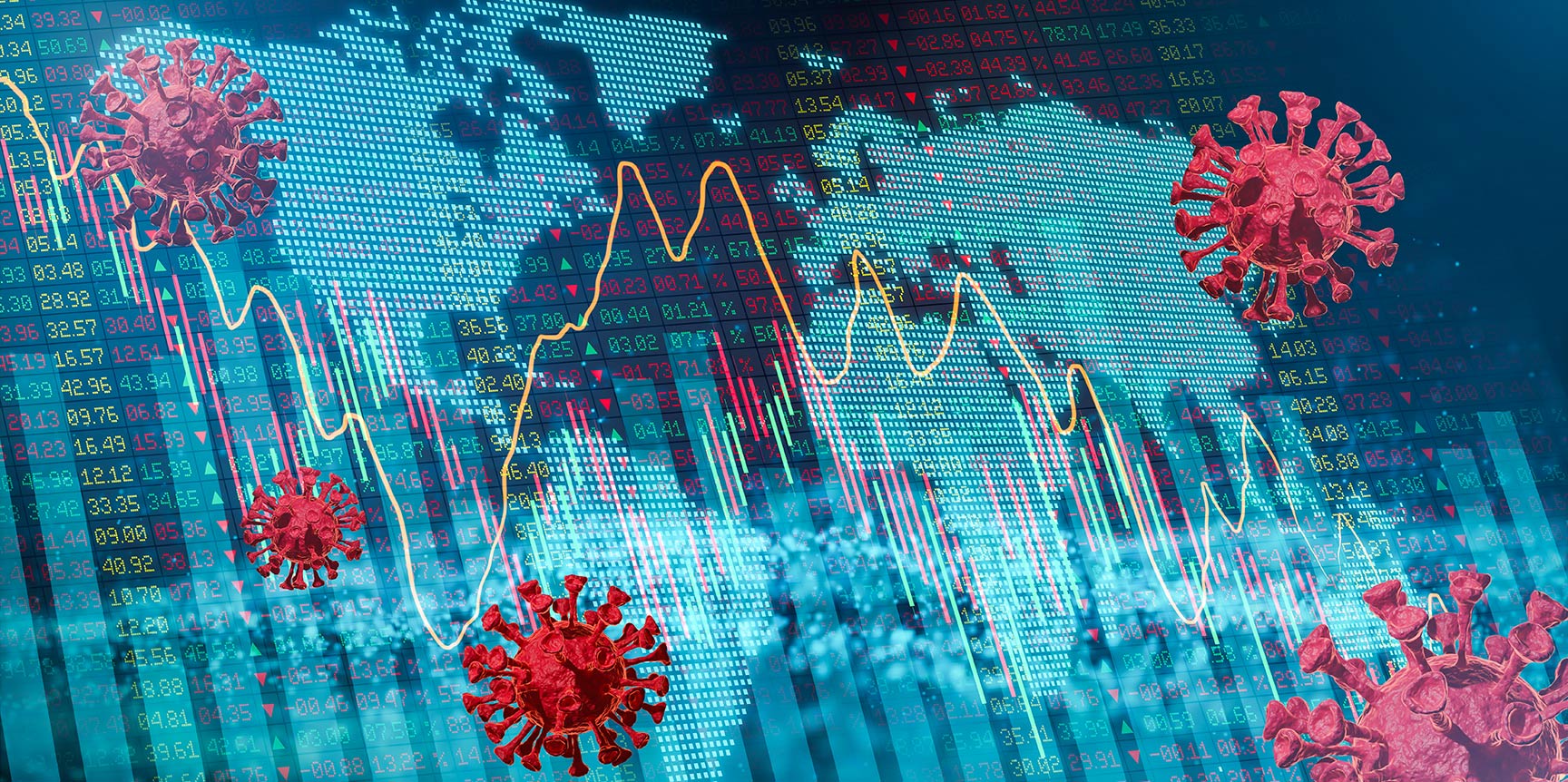
KOF Globalisation Index: COVID pandemic has slowed globalisation
The COVID-19 pandemic has acted as a noticeable drag on globalisation. This is confirmed by the latest KOF Globalisation Index. The coronavirus crisis and the related restrictions have caused the largest and fastest decline in international flows in modern history. There is little change in the top ten most globalised countries, except that Switzerland and the Netherlands have swapped places. Switzerland has therefore regained its position as the most globalised country in the world.
Historically, the advance of globalisation has been shaped by dramatic events. Following the demise of the Soviet Union, globalisation grew rapidly from 1990 until 2007. However, the financial crisis and the subsequent Great Recession of 2009 abruptly halted this trend. For 2020, the latest year covered by the KOF Globalisation Index, the degree of globalisation has decreased noticeably.
Economic globalisation particularly adversely affected by pandemic...
The progress of economic globalisation has been stagnating since the financial crisis of 2007, and this trend has been exacerbated by the trade conflict between the United States and China in recent years. A distinction must be made here between financial globalisation and trade integration. Whereas international financial flows (de facto financial globalisation) did not decline in 2020 while the legal framework remained unchanged (de jure financial globalisation), trade weakened. The trends in international trade integration (de facto trade globalisation) were particularly negative. Trade in services, such as tourism and transport, was massively constrained and caused volumes to decline.
... but social globalisation has also suffered
Social globalisation has also been severely affected, as the intensity of personal contacts (measured, for example, by tourism flows and migration) has been significantly reduced. Travel restrictions caused a decline in travel, and migration to OECD countries reached an all-time low in 2020. At the same time, there is a slight downward trend in cultural globalisation. Meanwhile, the degree of political globalisation, as measured by the current index, continues to increase modestly.
Country overview
Switzerland, the Netherlands and Belgium remain the most globalised countries in the world. Switzerland regained first place in 2020. It is strongly globalised in all categories (economic, social and political). Switzerland’s economic structure was particularly advantageous during the crisis of 2020. It has a high level of international trade integration and exports a particularly large number of chemical and pharmaceutical products. This sector has been less seriously affected by the COVID-19 pandemic than, for example, the production of aircraft and vehicles has. Politically, the three countries in the top spots play an important role in many international institutions, such as the World Trade Organization in Geneva and the EU Parliament in Brussels. They are followed by Sweden, the United Kingdom, Germany, Austria, Denmark, Finland and France.
European countries tend to be highly globalised owing to their strong political integration and free trade agreements. China has moved up several places to number 77. Although China was one of the first countries to be hit by the pandemic, production there adjusted quickly, so trade was only very marginally restricted in 2020.
Future outlook
As the indicator only extends to 2020, the impact of the war in Ukraine and its consequences are not taken into account in the latest KOF Globalisation Index. The pandemic-related supply shortages will then show up in next year’s publication. In addition, initial vaccination progress has triggered positive trends in social globalisation.
Downloads and Links
Download Press release (PDF, 81 KB)
Download Graphs and tables (PDF, 241 KB)
A video on the question of whether globalisation has run its course is available external page here.
Methodology
The KOF Globalisation Index measures the economic, social and political dimensions of globalisation. It is used to monitor changes in countries’ degree of globalisation over a long period of time. The latest KOF Globalisation Index is available for 195 countries and the period from 1970 to 2020. The index distinguishes between de facto globalisation and de jure globalisation in the overall index and in the economic, social and political components. The index measures globalisation on a scale of 1 to 100. The values of the underlying variables are divided into percentiles. 42 different variables are used and are aggregated using statistically determined weights (principal component analysis).
The sub-section of economic globalisation comprises trade flows on the one hand and financial flows on the other. De facto trade globalisation is determined on the basis of trade in goods and services. De jure trade globalisation includes tariffs, taxes and trade barriers. De facto financial globalisation comprises foreign investment in various categories. De jure financial globalisation includes investment restrictions, capital account openness and international investment agreements.
The sub-section of social globalisation contains the areas of personal contacts, information flows and cultural globalisation. A distinction is made between de facto and de jure for each area. Personal contacts of a de facto nature are measured by international telephone connections, tourism flows and migration, while contacts of a de jure kind are determined using telephone contracts, international airports and visa restrictions. De facto information flows are measured by international patent applications, international students and high-tech trade. In the de jure sphere, access to TV and internet, freedom of the press and international internet connections are assessed. Cultural globalisation consists of de facto trade in cultural goods, registrations of international trademark rights, and the numbers of McDonalds restaurants and IKEA stores. The de jure domain is measured by civil rights, gender equality and educational attainment.
The political globalisation sub-section is determined de facto by the numbers of embassies, international non-governmental organisations (NGOs) and participation in UN peacekeeping missions. The de jure domain includes variables on membership of international organisations and international treaties.
Contact
KOF FB Konjunktur
Leonhardstrasse 21
8092
Zürich
Switzerland